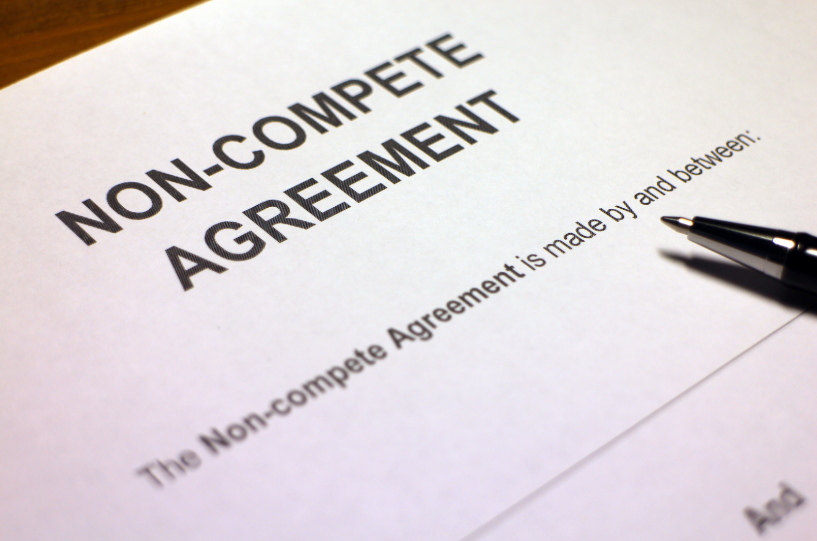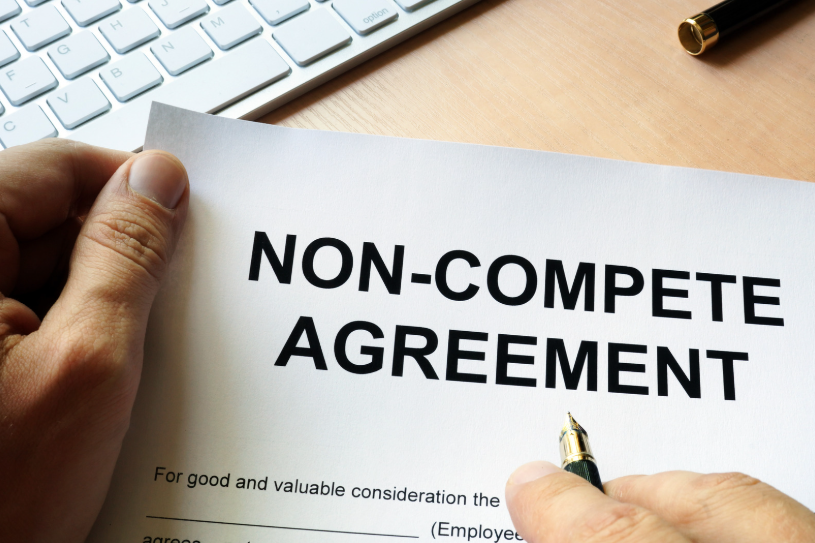
Non-compete agreements are often a point of contention between employers and employees. These agreements, designed to prevent employees from competing with their former employers after leaving a job, can significantly impact career mobility. If you’re wondering, are non-competes enforceable in Texas, the answer is not straightforward. Texas law allows for non-compete agreements, but they must meet specific criteria to be enforceable.
What Is a Non-Compete Agreement?
A non-compete agreement is a contractual clause that restricts an employee from working for competitors or starting a competing business for a specified period after their employment ends. Employers often use these agreements to protect trade secrets, confidential information, and client relationships.
While non-compete clauses serve legitimate business purposes, they must balance protecting the employer’s interests with allowing employees to pursue work in their chosen fields.
Are Non-Competes Enforceable in Texas?
Yes, non-competes are enforceable in Texas under the Texas Covenants Not to Compete Act.
In light of the court’s decision, Texas law still applies. While allowing non-competes, Texas law imposes strict requirements on these agreements to ensure fairness and reasonableness. For a non-compete clause in Texas to hold up in court, it must meet the following criteria:
- Part of an Enforceable Agreement: The non-compete must be ancillary to or part of an otherwise enforceable agreement, such as an employment contract.
- Supported by Consideration: Employees must receive something of value (e.g., access to trade secrets or specialized training) in exchange for agreeing to the non-compete.
- Reasonable in Scope, Duration, and Geographic Area: The restrictions must not be overly broad and must only protect the employer’s legitimate business interests.
If a non-compete agreement fails to meet these criteria, it may be deemed unenforceable.
How does the FTC Rule Affect Non-Compete Agreements in Texas?
Not today. On August 20, in Ryan v FTC a district court issued an order set aside the FTC from enforcing the rule on its effective date of September 4, 2024. However, the FTC has appealed that decision. Accordingly, companies are not required to comply with the rule unless and until the Fifth Circuit overturns or modifies the trial court decision.
How Long Can a Non-Compete Last in Texas?
The duration of a non-compete agreement in Texas must be reasonable. In most cases, courts consider one to two years to be reasonable, though this may vary depending on the industry and the type of information being protected. Agreements lasting beyond this period are more likely to face legal challenges.
What Makes a Non-Compete Clause Unenforceable?
Several factors can render a non-compete clause in Texas unenforceable. These include:
- Unreasonable Restrictions: If the agreement imposes excessive time, geographic, or activity-based restrictions, it may not hold up in court.
- Lack of Adequate Consideration: Employers must provide sufficient benefits, such as confidential information or specialized training, in exchange for the non-compete.
- Technical Defects: An unsigned agreement or failure to comply with legal formalities can undermine enforceability.
Employers must draft non-competes carefully to avoid these pitfalls, while employees should review their agreements thoroughly before signing.
How to Get Out of a Non-Compete Agreement in Texas

If you’re bound by a non-compete agreement, you may wonder how to get out of a non-compete agreement in Texas. Here are some options:
- Negotiate with Your Employer: Employers may agree to modify or release you from the agreement, especially if the restrictions are overly burdensome.
- Challenge Enforceability in Court: If the non-compete is unreasonable or lacks adequate consideration, a court may declare it unenforceable.
- Wait for Expiration: Many non-competes have a limited duration. Once the agreement expires, the restrictions no longer apply.
- Seek a Waiver: Some employers may grant waivers allowing employees to work for competitors under specific conditions.
Each case is unique, so consulting with a qualified attorney is essential to determine the best approach.
Texas Non-Compete Time Limits
Under Texas non-compete law, time limits must be reasonable and necessary to protect the employer’s legitimate interests. Courts generally favor shorter durations, such as one to two years, but longer periods may be upheld in exceptional cases. The duration often depends on factors like:
- The nature of the business.
- The employee’s access to sensitive information.
- The time it takes for the information to become outdated.
If the time limit is excessive, a court may modify the agreement to make it reasonable.
How Often Are Non-Competes Enforced in Texas?
Non-competes are enforced in Texas when they meet the legal requirements of the Texas Covenants Not to Compete Act. However, many agreements fail to satisfy the enforceability criteria, leading to challenges in court. Courts frequently evaluate whether the agreement strikes a fair balance between protecting the employer’s interests and allowing the employee to earn a living.
Does a Non-Compete Hold Up in Texas?
Whether a non-compete holds up in Texas depends on its terms and the specific circumstances. Courts will enforce agreements that are:
- Reasonable in scope, duration, and geographic area.
- Necessary to protect legitimate business interests.
- Supported by adequate consideration.
If an agreement is overly restrictive or lacks sufficient justification, it may not withstand legal scrutiny.
Things to Consider for Non-Compete Laws in Texas
Texas non-compete laws emphasize fairness and reasonableness. Employees and employers should consider the following:
- Geographic Scope: Non-competes must specify a reasonable geographic area. For example, a restriction covering an entire state may be deemed excessive unless justified by the employer’s business operations.
- Activity Restrictions: The agreement must clearly define the activities prohibited, ensuring they align with protecting business interests.
- Industry-Specific Factors: Some industries may have unique considerations, such as the protection of trade secrets or client relationships.
Understanding these factors can help both parties navigate the complexities of Texas non-compete laws.
Non-Compete Agreement Tips for Employees
Employees bound by non-competes should take the following steps:
- Review the Agreement Carefully: Understand the scope, duration, and geographic restrictions before signing.
- Seek Legal Advice: Consult an attorney to assess the enforceability of the agreement.
- Document Employer Conduct: If the employer fails to provide promised benefits or violates the agreement, this could impact enforceability.
If you’re considering how to get out of a non-compete, a lawyer can help you explore your options.
Tips for Employers Drafting Non-Compete Agreements
Employers drafting non-compete agreements should:
- Focus on Reasonableness: Ensure restrictions are no broader than necessary to protect legitimate interests.
- Provide Adequate Consideration: Offer meaningful benefits, such as training or access to trade secrets, to justify the agreement.
- Consult Legal Experts: Work with an attorney to draft enforceable agreements that comply with Texas noncompete law.
A well-drafted non-compete can protect your business while minimizing legal disputes.
Why Work with a Trusted Non-Compete Agreement Attorney?

Navigating the complexities of Texas non-compete laws can be challenging. Whether you’re an employer seeking to protect your business or an employee looking to challenge a restrictive agreement, having experienced legal guidance is crucial.
At Roquemore Skierski Business Lawyer, we specialize in helping clients understand and navigate non-compete agreements in Texas. Our team provides personalized advice and representation to ensure your rights are protected.
Contact Roquemore Skierski Business Lawyer today to learn how we can assist with your non-compete agreement needs. Let us help you achieve a fair and favorable resolution.

